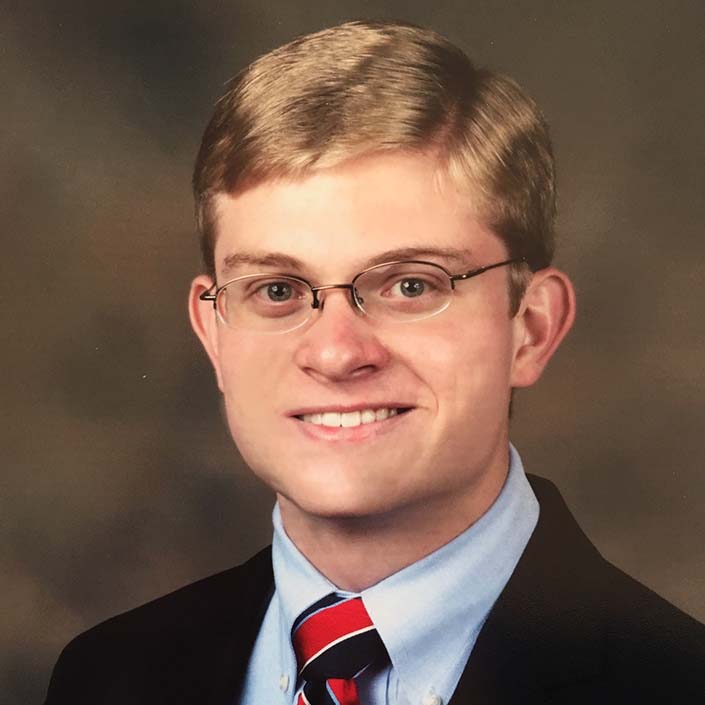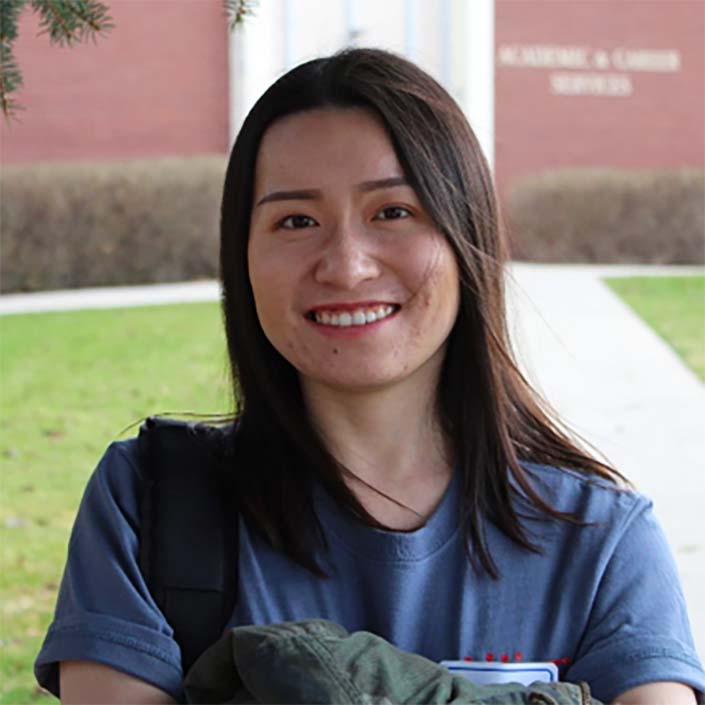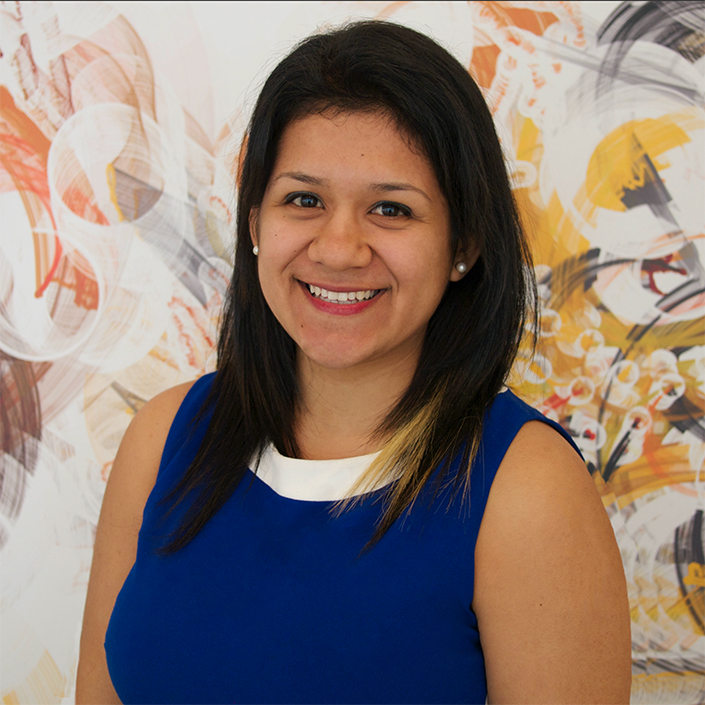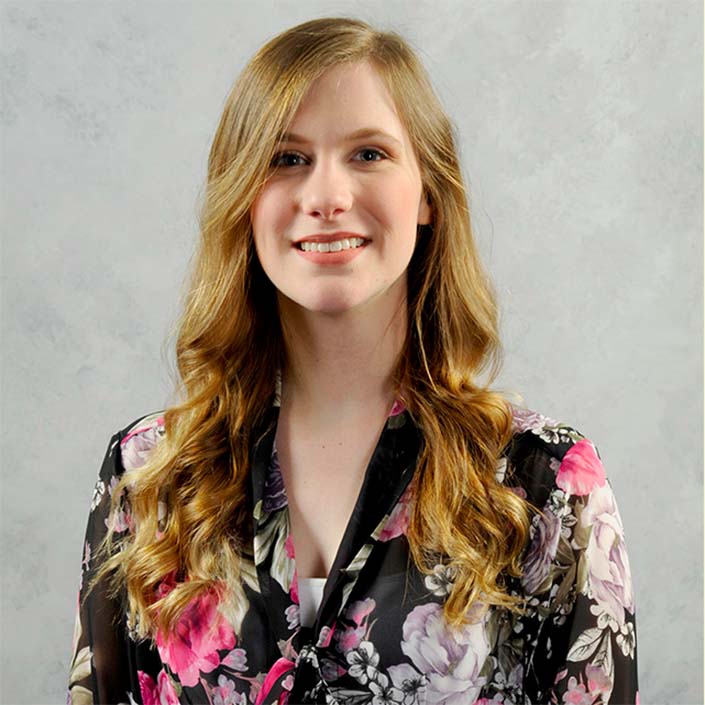Six ECE graduate students recognized by NSF Graduate Research Fellowship Program
Six ECE graduate students were selected for their outstanding research work in a variety of disciplines.
ECE congratulates three graduate students who have been awarded prestigious NSF Graduate Research Fellowships and three who were recognized by the program with honorable mentions. The program recognizes and supports outstanding graduate students in NSF-supported science, technology, engineering, and mathematics disciplines who are pursuing research-based masters and doctoral degrees at accredited United States institutions.
The six students represent a broad range of research areas in the department. Learn more about their work:
NSF Award recipients

 Enlarge
Enlarge
Joseph Costello
Joseph’s past research work focused on creating computational models to optimize deep brain stimulation for Parkinson’s disease. His PhD research will focus on developing microscale neural recording sensors and machine learning algorithms for processing neural data. Through this work, he hopes to enable new brain-computer interfaces for treating neurological disorders. Joseph will be co-advised by Professors Cindy Chestek and David Blaauw.
Joseph recently completed a Bachelor of Electrical Engineering degree from University of Michigan, and he’s excited to continue at Michigan through grad school. When he’s not doing research, he trains and competes at the national level with the Michigan Triathlon Club.

 Enlarge
Enlarge
Zachary Fritts
Zachary will join the Radiation Laboratory as an ECE PhD student this summer. His research will fall into one or more categories of applied electromagnetics, including the design of engineered electromagnetic structures such as metasurfaces and electromagnetic band-gap materials, microwave circuits, and antennas. He will be co-advised by Professors Anthony Grbic and Kamal Sarabandi.
Zachary will receive his bachelor’s degree in bioengineering from the University of Pittsburgh in April of 2020. While at Pitt, he worked in the Radiofrequency Research Laboratory (led by Dr. Tamer Ibrahim), where he helped design and build transmit arrays for ultra-high field magnetic resonance imaging (MRI).

 Enlarge
Enlarge
Tonglin Lu
Tonglin works to improve fundamental technology for most electronic devices. As an ECE PhD student, she will explore the functionality of Nickel oxide (NiO) as a p-type TFT material, as well as adopting the Inkjet Printing technique into the transistor fabrication on flexible substrates. Her advisor will be Prof. Becky Peterson.
Tonglin graduated from Boise State University with a B.S. in Electrical Engineering.
Honorable Mentions

 Enlarge
Enlarge
Ester Bentley
Ester is a first-year PhD student. Her research centers on the development of low-cost high-performance inertial sensors for GPS-free navigation. More specifically, she is focused on exploring the lattice-level mechanisms negatively affecting the performance of functionally coated resonators used in gyroscopes in order to develop higher performing next-gen systems. She is advised by Prof. Khalil Najafi.
Ester received her B.S. in Materials Science and Engineering from MIT and spent five years in industry before starting graduate school. Ester is a College of Engineering Bridge-to-the-Doctorate Fellowship recipient, a Rackham Merit Fellow, and will begin her tenure as a NDSEG Fellow this fall.

 Enlarge
Enlarge
James Gruber
James is a first year PhD student at U-M currently researching novel topologies for designing circuits using GaN HEMT nonlinearities to operate in the mm-Wave and THz regions. He is advised by Prof. Ehsan Afshari.
James hopes to pursue a startup sometime after graduation. He received a B.S. in Computer Engineering and a B.M. in Music at the University of Florida in 2019. He’s also a classically trained musician, playing the classical guitar and the clarinet.

 Enlarge
Enlarge
Rebecca Lentz
Rebecca researches high-performance Lidar as a key path for both future collision warning systems and autonomous vehicles. Current-day Lidar systems are too expensive and noisy to be used for these purposes. Type-II superlattices and barrier detector devices utilize quantum bandgap engineering and novel device design to improve affordability and sensing quality of the infrared detectors used in Lidar systems. Rebecca works to improve these detectors to enable a key component for Lidar and SWIR-based defense and medical imaging systems, as well as endless other future applications that can impact the everyday lives of not only those in America but people in developing countries as well. She is advised by Prof. Jamie Phillips.
Rebecca earned a B.S. in Electrical Engineering from Lehigh University in Pennsylvania where she worked for many years as a research assistant. Outside of classes and research, she participates in FEMMES+ and gradSWE in the hopes of building a stronger community of women in STEM.
 MENU
MENU 
